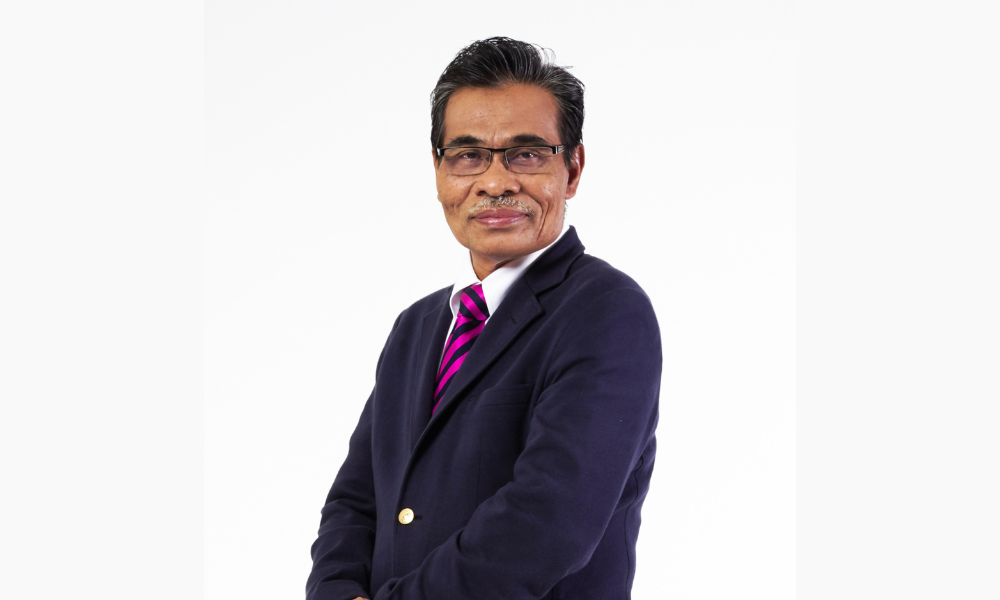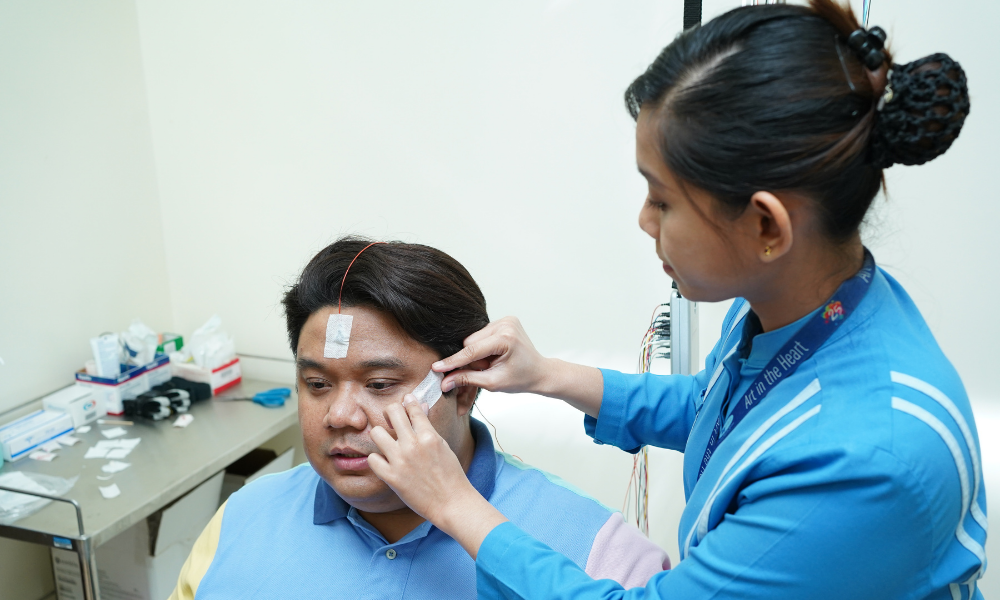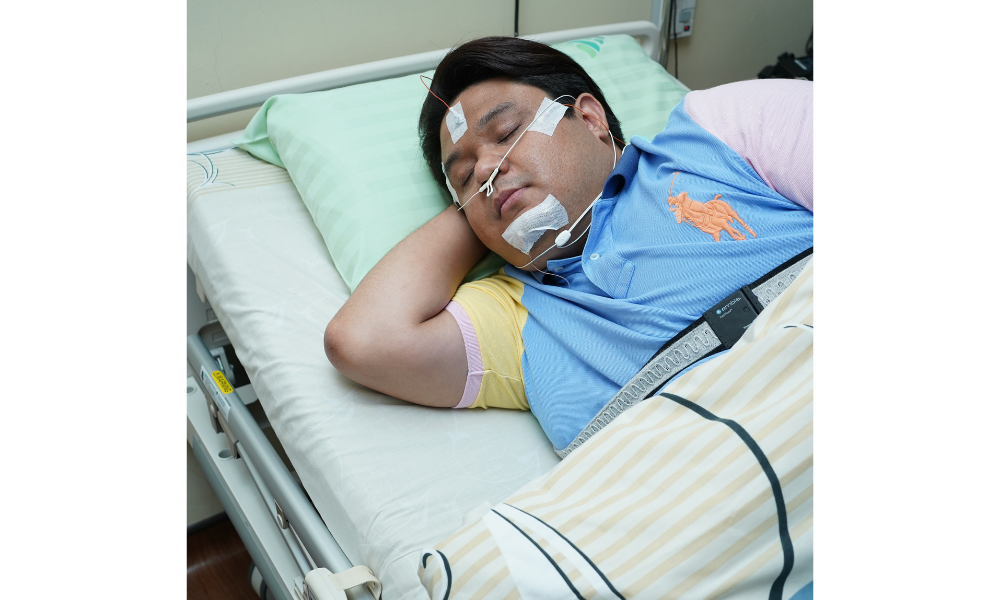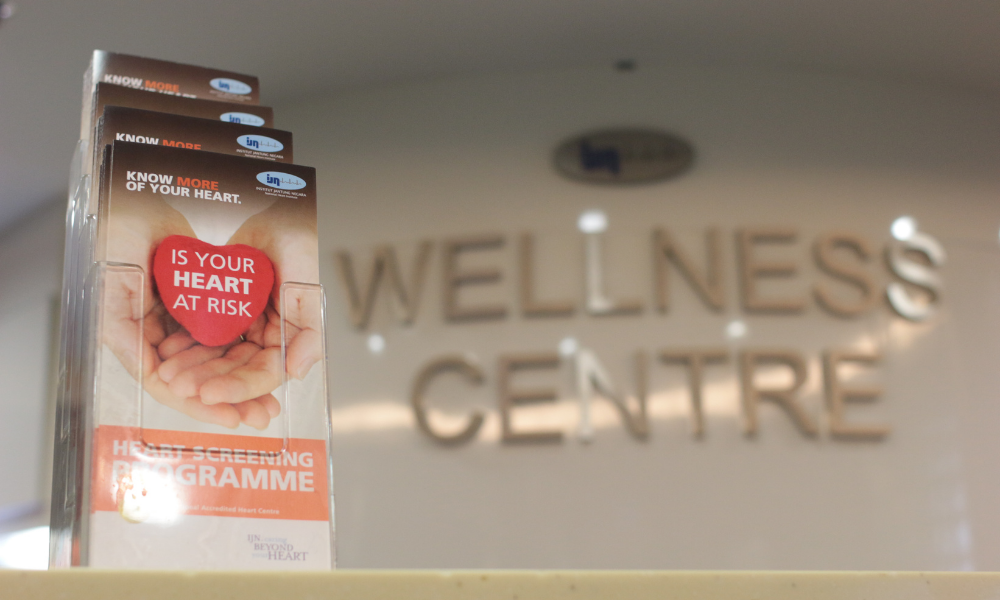When was the last time you had a good night’s rest? Sleep is essential for your well-being as it allows your body and brain to recover – but with our busy modern lives, many people do not get an adequate amount of sleep. Aside from feeling fatigued during the day, a chronic lack of sleep can bring about serious health consequences, and has been strongly linked to diabetes, obesity and heart disease.
“Ideally, you should aim to get six to eight hours of sleep every night,” says Institut Jantung Negara (IJN) consultant pulmonologist Dr Ashari Yunus. “Many people still underestimate the importance of sleep – especially in terms of how it affects your heart health. Research has shown that sleep deprivation can increase blood pressure, which is a high risk factor for cardiovascular disease.”
This connection between heart health and sleep is why IJN decided to establish a Sleep Clinic, to cater to patients suffering from sleep disorders. Staffed by a multidisciplinary team of specialists, the Sleep Clinic offers care for condition such as sleep apnoea and complications of Obstructive Sleep Apnoe (OSA) and has a dedicated Sleep Laboratory to assess and diagnose sleep-related disorders.
“Sleep is a very wide field – there are over 80 types of sleep-related conditions and disorders,” explains Dr Ashari, who was the former president of the Sleep Disorder Society Malaysia. “Given the pool of expertise here at IJN, we specialise in sleep conditions that have a direct impact on the heart.”
Dr Ashari adds that good sleep hygiene, such having a consistent sleep schedule and avoiding mentally stimulating activities right before bedtime, can help improve your quality of sleep. However, good habits alone may not be enough to address more serious sleep conditions. One particularly common and serious condition is sleep apnoea.

Sleep apnoea: common yet under-reported
Sleep apnoea is where a person’s breathing is interrupted during sleep. This is often characterised by loud snoring and nocturnal choking; the latter being the feeling of suddenly bolting awake and gasping for air. As the sufferers of the condition wake up repeatedly through the night just to resume breathing properly, their sleep becomes fragmented.
Dr Ashari says while it’s hard to come by hard numbers of how many people suffer from sleep apnoea, studies around the world show it may affect some 20% of the population. “I think that even this might be an under-reported number, because there is still a lack of awareness about the condition – many people think that snoring is a normal part of sleep. Some doctors themselves may not know how to fully identify the problem, and so it could easily go undiagnosed,” he adds.
In general, there are three types of sleep apnoea, categorised by the root cause of interrupted breathing during sleep. The most common type by far is obstructive sleep aponea, which is caused by a blockage or restriction of the upper airway; this usually happens when the muscles and tissue around the throat relax during sleep. Meanwhile, central sleep apnoea occurs when the brain fails to transmit proper signals to the breathing muscles, and mixed sleep apnoea is a combination of the two other types.
“Whatever the type of sleep apnoea, our main concern is making sure that patients get enough oxygen during their sleep and are well-rested in general,” says Dr Ashari. “The most damaging effects of sleep apnoea may not be immediate. Over time, the constant interruptions to the body’s oxygen supply can build up and lead to serious long-term complications in the lungs, heart, and brain.”
Although anyone can suffer from sleep apnoea, certain factors can increase the risk of developing the conditions. These risk factors include obesity, existing medical conditions such as high blood pressure, diabetes and Chronic Obstructive Pulmonary Disease (COPD), as well as lifestyle habits like smoking.
Aside from snoring and gasping for air during sleep, other symptoms of sleep apnoea include pauses in breathing during sleep, waking up with a dry mouth or a sore throat, and excessive sleepiness during the day.
“The common complaints I hear from patients are day-time symptoms, such as an inability to focus and forgetfulness, as these are signs that you may not be getting enough sleep,” adds Dr Ashari. “Some people are so fatigued that they may end up dozing off during the day without realising it; even while they are driving. That’s obviously a dangerous situation that can lead to road accidents.”
Studying your sleep
Dr Ashari explains that the best way to diagnose sleep apnoea is through polysomnography, also known as a sleep study, which is usually requires an overnight hospital stay (level 1 sleep study). Polysomnography is a non-invasive test that uses specialised equipment with electrodes to monitor the body during sleep.

Among the measurements recorded during this sleep study are breathing patterns, heart rate, brain waves, oxygen levels in the blood, and eye and leg movements. These measurements help doctors identify disruptions to a patient’s stages of sleep, as well as abnormal changes in heart and breathings pattern.
“Our sleep technicians will also be observing you while you sleep, to look out for other symptoms such as sleep-walking or talking. This is ideal, because all the charts and graphs can only give you one part of the picture – a sleep technician can give us more context to those readings from the machine,” adds Dr Ashari.

However, IJN’s Sleep Laboratory also offers patients the option of a home-based sleep study (level 2 and 3 sleep study).This offers patients the convenience of carrying out a simplified sleep study within the comforts of home. The machines used in a home sleep study can vary, but at minimum, they will track a patient’s breathing and oxygen levels during their sleep.
Treatment for sleep apnoea depends on its severity, says Dr Ashari. “For mild cases, patients may just need to make some lifestyle changes. In these cases, obesity is a common cause of the problem, so our advice is to get regular exercise and a have a balanced diet. We also offer patients additional support in helping them make these changes, such as referring them to our dietitians,” he says.
Those with moderate to severe sleep apnoea may require other interventions. “The most common therapy is positive airway pressure, and often the continuous positive airway pressure (CPAP) is used. This is a machine which delivers air pressure through nasal mask or full face mask; the pressure then helps open up the airway to allow the patient to breathe properly,” explains Dr Ashari.
In some cases however, patients may require surgery. According to Dr Ashari, this is usually when there is an obstruction in the airway, such as enlarged tonsils or nasal polyps (growths of tissue) restricting the flow of air to the body.
“Treatment and long-term care really depends on what the root cause of sleep apnoea is,” he adds. “What is important is that patients should seek help as soon as they experience symptoms of sleep deprivation, because conditions like sleep apnoea can pose serious health risks in the long term.”
For more information, head to IJN’s Health and Wellness packages as they offer more comprehensive health screenings, tests and consultations.


